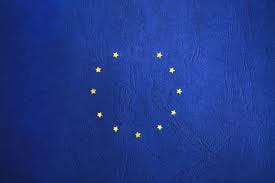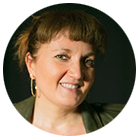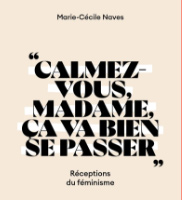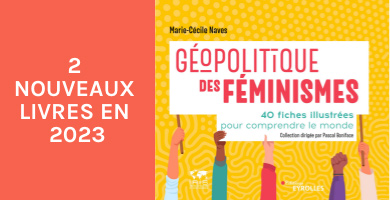Valuing women’s skills would considerably strengthen the functioning of European institutions, collective trust and social cohesion – in other words, « everyday democracy » in Europe. New post on Substack, May 28th 2024.

All over the world, and notably in Europe, when women’s rights regress, all human freedoms are undermined. Attacks on these rights are the obsession and weapon of anti-democratic forces. Anti-feminism is not only an effect of attacks on democracy, it is also a means. To propagate these ideas, conspiracy and propaganda have become the norm.
But the opposite is also true: preserving and strengthening women’s rights and gender equality is an essential foundation of an emancipatory social project for all. Feminism is just as much a powerful force for mobilization as it can be an immense source of inspiration for decision-makers, and for the voters who will choose the members of the European Parliament on June 9th.
A feminist Europe would set an example to the world and be stronger, at every level. Gender equality and women’s rights are a founding value of the European Union (EU), and undeniably, further progress has been made in recent years. In February, for example, the European Parliament and the EU member states adopted a directive on violence against women, aimed at better combating genital mutilation, forced marriage, cyberstalking and incitement to violence or hatred online, and the disclosure of intimate images.
Safe and guaranteed access to abortion
Including the right to abortion in the European Charter of Fundamental Rights would be a logical next step. Safe and guaranteed access to abortion is also a prerequisite for better access for girls and women to health, education, employment and freedom of movement. The « most-favored-European-citizen clause », advocated by Gisèle Halimi and the “Choisir la cause des femmes” movement, would also be a way for all current and future European citizens to benefit from the most favorable rights and legislation of member states.
A new European Parliament can provide both the impetus and the resources needed to achieve equal rights, provided that this is put into practice: effective action against all forms of patriarchal violence, the fight against wage and career discrimination, gender diversity in the workplace whatever the skills, a better balance between personal and professional life, and so on.
But let’s not stop here. Making better use of women’s skills would considerably strengthen the functioning of European institutions, collective confidence and social bonds – in other words, « everyday democracy ». The UN 5th Sustainable Development Goal, « Achieve gender equality and empower all women and girls », cuts across all the others.
Winning the battle of complexity, encouraging critical thinking and innovation, and raising everyone’s capacity for analysis and proposal, all of this implies breaking with the logic of a monopoly of expertise, both political and media. Gender equality (“parité”) is the most effective lever for achieving a fairer representation of society in decision-making processes and authorities, whatever they are, and shattering the endogamies which, because they are based on a refusal to question oneself, lead to disaster.
A gender-conscious agenda in Europe
Today, Europe is both the theater and the actor in a war that takes on many faces beyond the military: cyber-attacks, disinformation, ever more sophisticated espionage and so on. Genuine European feminist diplomacy must therefore be global and ambitious. It can become a major tool for contributing to conflict prevention and resolution, both in the short and long term, because « post-war » situations take years, decades and generations. Bringing women, especially women in the field, to the negotiation table for peace-building is obvious, but has still to be put into practice.
Restoring peace will not, however, be limited to silencing the guns. In a recently published book, “Feminist Peace Research. An Introduction” (Routledge, 2024), researchers Elise Féron and Tarja Väyrynen show that peace is an unstable, long process, fraught with challenges. Far from being a single “event”, peace is a « practice » that involves combating « multiple forms of violence, stigmatization and marginalization ».
As long as power structures, narratives and memories remain patriarchal, and national or cultural norms remain oppressive once treaties have been signed, only part of the way will have been covered. It is therefore key to adopt a gender-conscious approach for the entire political agenda: to review negotiation and decision-making procedures, to systematically assess their impact, to take steps to the side in order to always keep in mind the project of « everyday peace » that we wish to pursue, in all fields of public policy.
European values are not abstract, they do not « float in the air », for each and every one of us to catch in the breeze or by chance. On the contrary, they build a vision, an ambition. They are embodied in words, actions and specific means. A feminist Europe could usefully seize upon them by making gender equality its major cause for the next parliamentary term.
This article was initially published in the French daily “Le Monde”, May 15th 2024.


